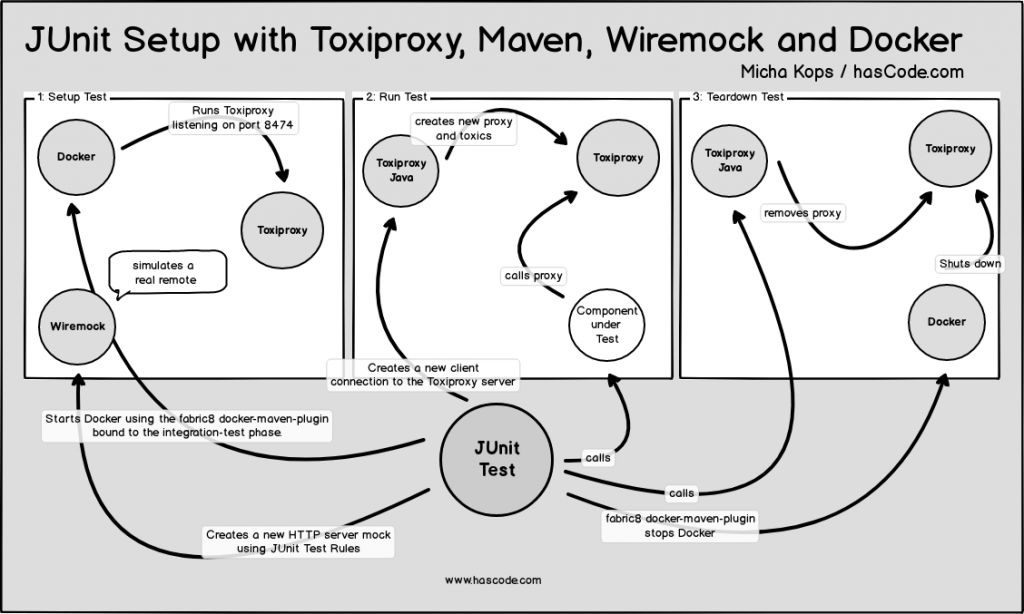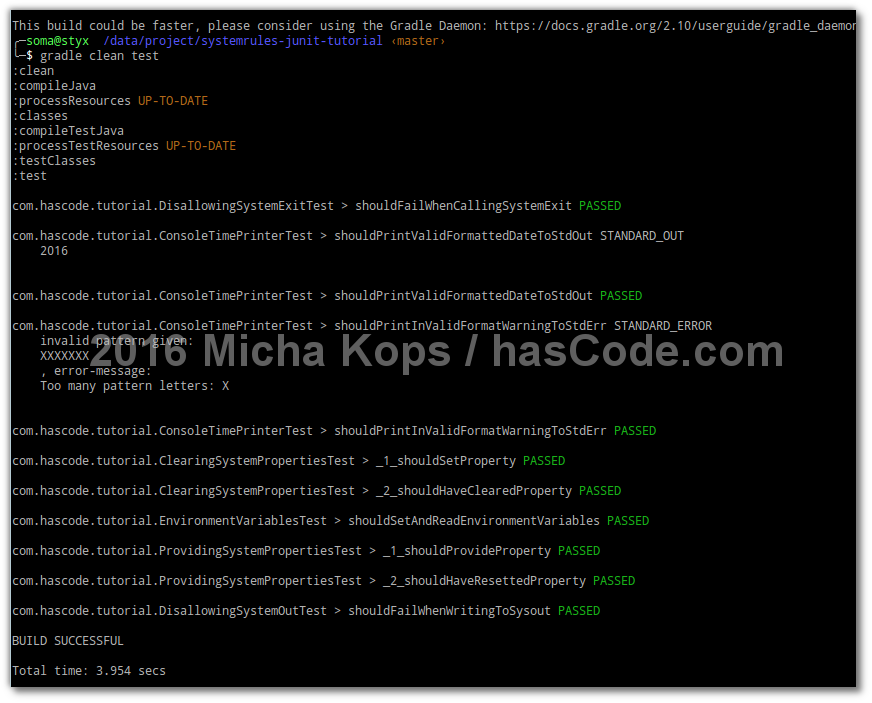
Testing Java Applications for Resilience by Simulating Network Problems with Toxiproxy, JUnit and the Docker Maven Plugin
When implementing distributed systems, client-server architectures and simple applications with network related functionalities, everything is fine when we’re in the development or in the testing stage because the network is reliable and the communicating systems are not as stressed as they are in production. But to sleep well we want to validate how resilient we have implemented our systems, how they behave when the network fails, the latency rises, the bandwidth is limited, connections time out and so on. ...

